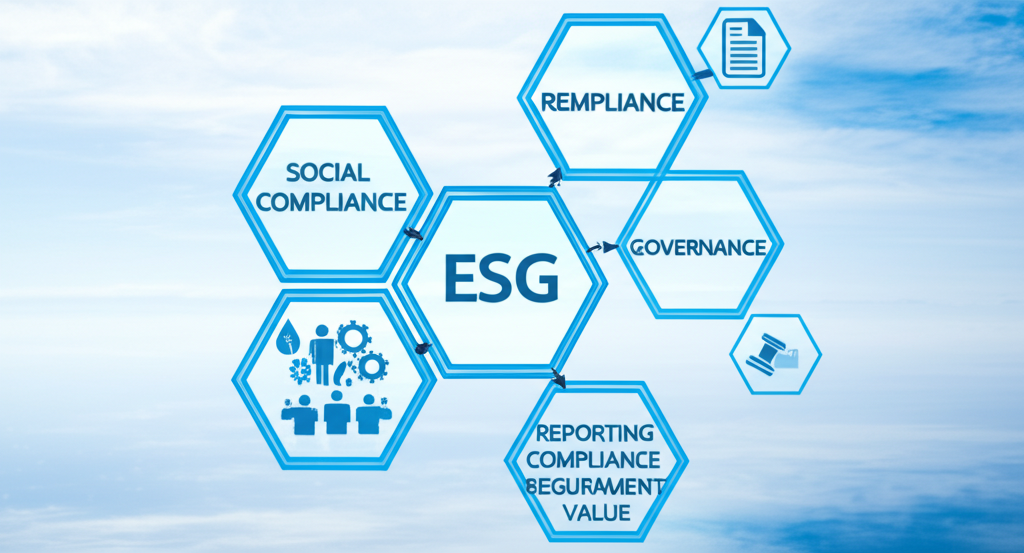
ESG Reporting and Compliance: Meeting 2025 Regulatory Requirements
Table of Contents
The Evolving ESG Regulatory Landscape
Environmental, Social, and Governance (ESG) reporting has transformed from a voluntary disclosure practice to a mandatory requirement in many jurisdictions. As we navigate 2025, public companies face an increasingly complex web of ESG regulations that demand strategic attention and compliance expertise.
The regulatory landscape has evolved significantly with the implementation of several major frameworks:
- Corporate Sustainability Reporting Directive (CSRD) - Now fully implemented across the EU, affecting not only European companies but also non-EU companies with significant EU operations
- Sustainable Finance Disclosure Regulation (SFDR) - Requiring detailed sustainability disclosures from financial market participants
- SEC Climate Disclosure Rules - Mandating climate-related disclosures for public companies in the US
- International Sustainability Standards Board (ISSB) Standards - Providing a global baseline for sustainability reporting
Key Compliance Challenges for IR Teams
Investor Relations professionals face several critical challenges when navigating ESG reporting compliance:
1. Data Collection and Verification
The most significant challenge remains collecting accurate, consistent, and verifiable ESG data across global operations. Companies must implement robust data management systems that can:
- Capture data from diverse business units and geographies
- Ensure data quality and consistency
- Maintain audit trails for verification
- Integrate with financial reporting systems
2. Framework Alignment and Materiality Assessment
With multiple frameworks in play, companies must determine which standards apply to their operations and how to efficiently report across overlapping requirements. This requires:
- Conducting comprehensive materiality assessments
- Mapping disclosure requirements across frameworks
- Identifying core metrics that satisfy multiple frameworks
- Developing a coherent narrative across different reporting formats
3. Assurance and Verification
As regulatory requirements tighten, third-party assurance of ESG data is increasingly mandatory. IR teams must:
- Select appropriate assurance providers
- Prepare for rigorous verification processes
- Ensure internal controls meet assurance standards
- Communicate assurance levels to stakeholders
Strategic Approaches to ESG Compliance
Integrated Reporting Systems
Leading companies are moving beyond siloed sustainability reports to integrate ESG data into their core financial and operational reporting systems. This approach:
- Streamlines data collection and verification
- Enhances data reliability and consistency
- Facilitates more efficient reporting across frameworks
- Supports better decision-making by connecting ESG and financial performance
Technology Solutions
Purpose-built ESG reporting platforms and data management systems have become essential tools for compliance. These technologies offer:
- Automated data collection and validation
- Framework mapping and gap analysis
- Scenario analysis for climate-related disclosures
- Audit trails and documentation for assurance
Cross-Functional Governance
Effective ESG reporting requires collaboration across multiple functions. Leading companies establish:
- ESG steering committees with representation from IR, finance, legal, operations, and sustainability
- Clear roles and responsibilities for data ownership and verification
- Board-level oversight of ESG reporting and compliance
- Regular internal audits of ESG data and processes
Communicating ESG Performance to Investors
Beyond compliance, effective ESG reporting should support your investor communications strategy:
Align ESG Narrative with Business Strategy
Frame ESG initiatives and performance within your broader business strategy and value creation story. This helps investors understand how sustainability drives long-term value and competitive advantage.
Quantify Financial Impacts
Whenever possible, quantify the financial implications of ESG initiatives, risks, and opportunities. This might include:
- Cost savings from energy efficiency or waste reduction
- Revenue opportunities from sustainable products
- Risk mitigation value from climate adaptation measures
- Productivity gains from diversity and inclusion initiatives
Benchmark Performance
Provide context for your ESG performance by benchmarking against industry peers, recognized standards, or your own historical performance. This helps investors evaluate your relative position and progress.
Preparing for the Next Wave of Regulations
The ESG regulatory landscape continues to evolve rapidly. Forward-thinking IR teams should prepare for:
- Expanded Scope of Disclosure - Beyond climate to include biodiversity, human rights, and supply chain due diligence
- Increased Granularity - More detailed metrics and scenario analyses, particularly for climate-related disclosures
- Mandatory Assurance - Higher levels of third-party verification across more ESG metrics
- Digital Reporting - Structured data formats and tagging requirements for machine readability
Conclusion: From Compliance to Competitive Advantage
While ESG reporting compliance presents significant challenges, companies that develop robust, efficient reporting systems gain advantages beyond mere compliance:
- Better risk management and strategic decision-making
- Improved access to capital from ESG-focused investors
- Enhanced reputation with customers, employees, and other stakeholders
- Operational efficiencies identified through comprehensive ESG data analysis
By approaching ESG reporting as a strategic opportunity rather than a compliance burden, IR teams can help their companies navigate the complex regulatory landscape while creating long-term value for investors and other stakeholders.


